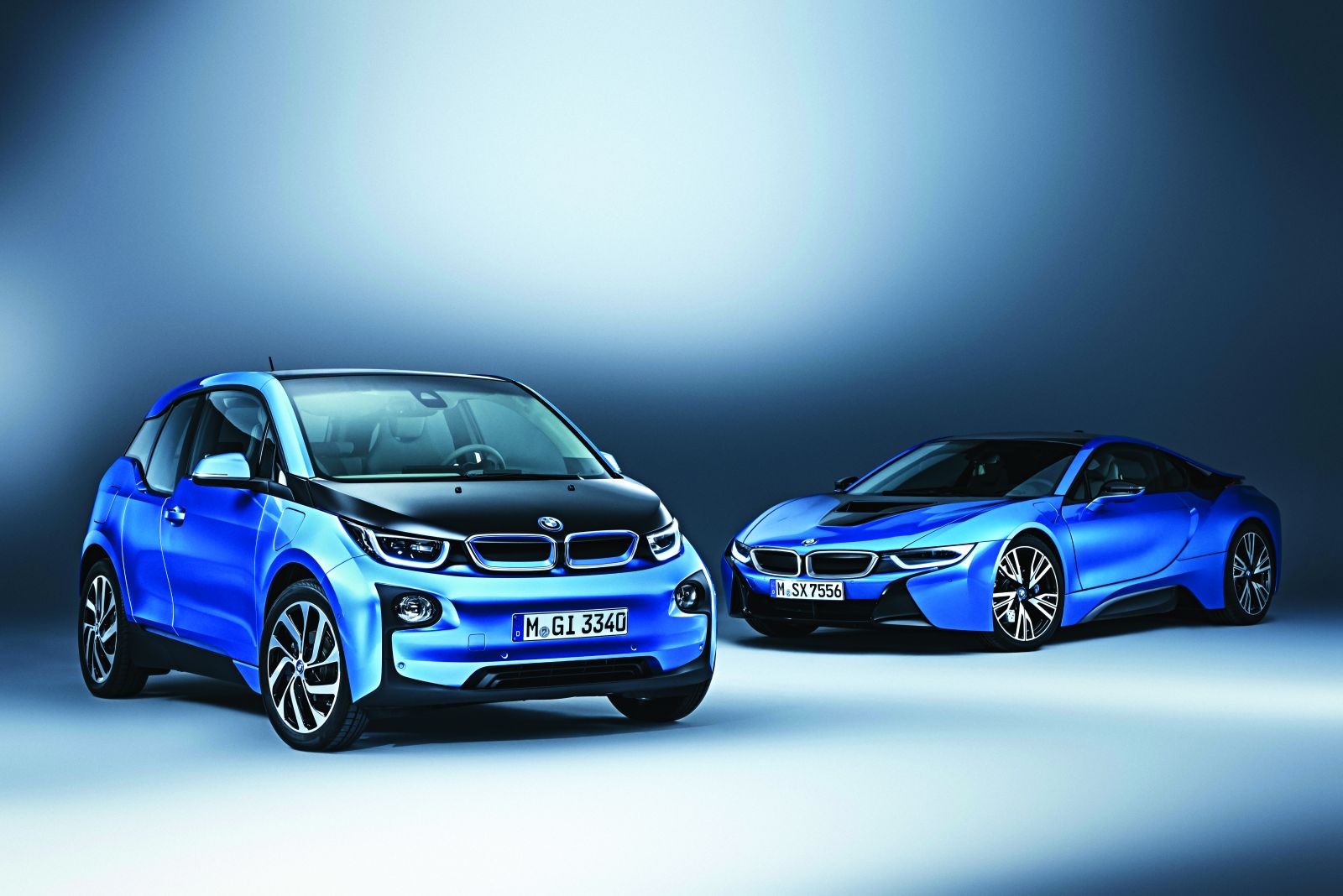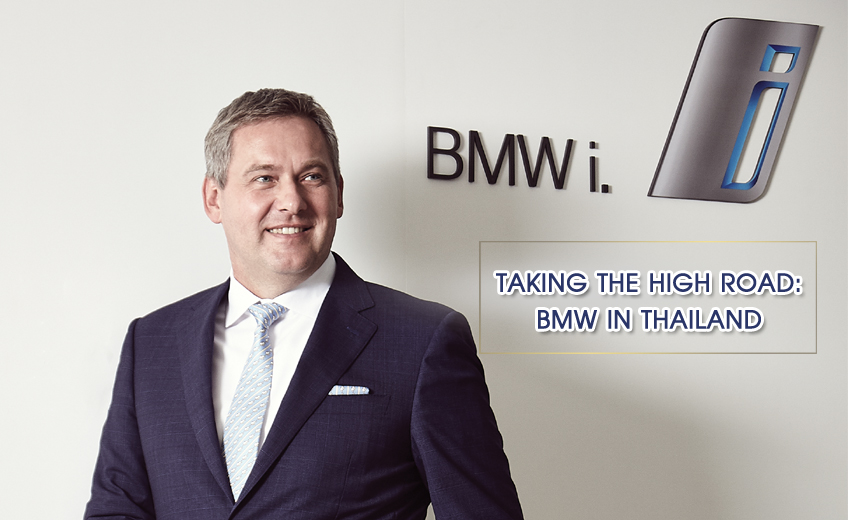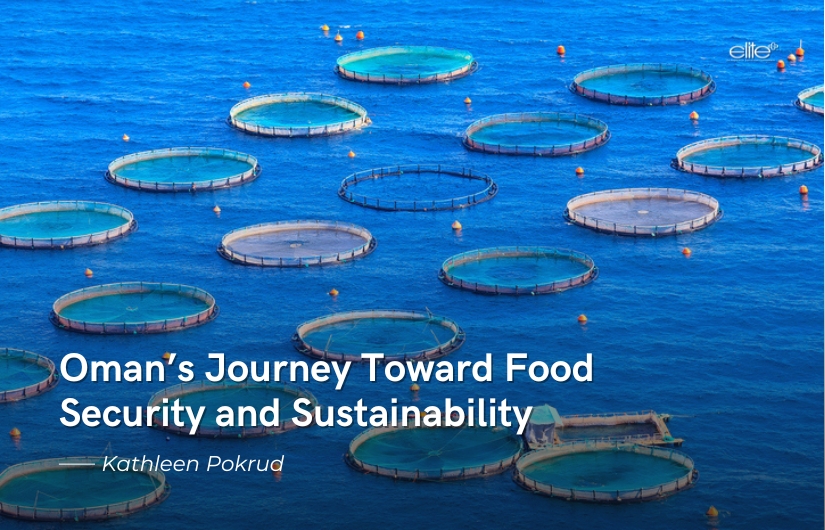Bayerische Motoren Werke, or BMW to connoisseurs of the premium sports car, has a long-standing history in Thailand. Local importers first brought the German automobile to Thai shores decades ago, before parent company BMW AG set up business officially as BMW Thailand in 1998. Stefan Teuchert, president of BMW Group Thailand, spoke exclusively to Elite+ on BMW’s role as a corporate citizen and how it views electrification of the automotive industry in Thailand.
- Describe the relationship between Thailand and the BMW brand.
BMW started in Thailand in 1961 when the first BMW car was imported to Thailand by a local importer. It was a BMW 700, which was then followed by many more models such as the 2002 model in 1972, which was a very nice car that was even used by the Royal Thai Police. Then later there were the 3-series and the 5-series in 1981, and later on in 1998 we had our first day sales company established on October 3, 1998. And then if we talk about further development, in 2000 we started our own production plant in Rayong, and in 2001 BMW Leasing became the third BMW entity in Thailand. Our plant in Rayong assembles the BMW Motorrad, MINI and BMW cars, and the plant’s speciality is that all three brands are assembled under one roof, which is unique because it is the only BMW plant in the world to do that.
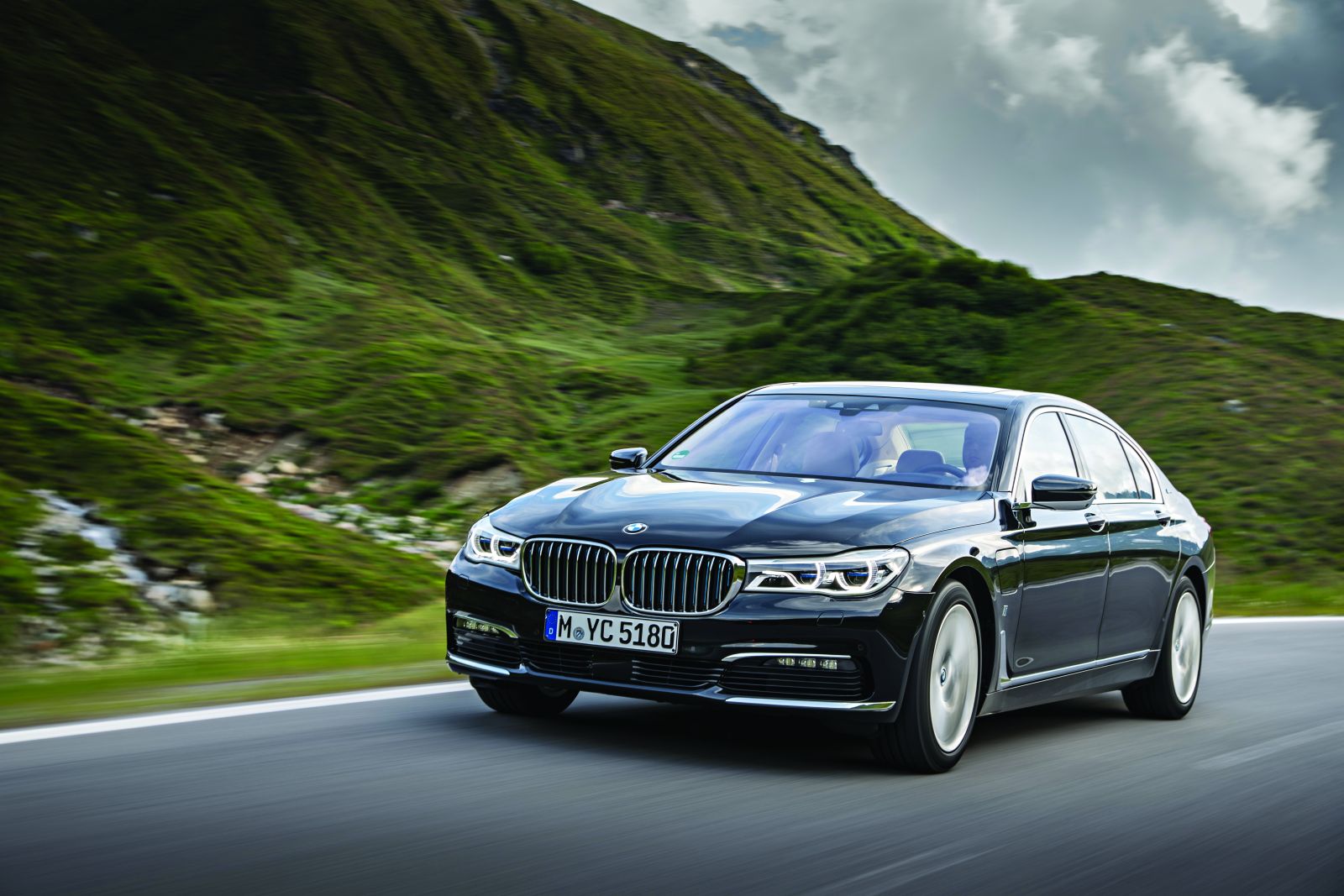
- Talk about the success of BMW in the Thai market.
Of course if you look at the development of the vehicle market in Thailand, then automobile brands with long traditions can build up their market from the generations of customers who are accustomed to the brand. If you compare worldwide success, the BMW group [including MINI, Motorrad and Rolls Royce] is still the most successful premium brand; our brand image is very high and the feedback we get from the market here is that our customers love our brand. It’s a question of time, a question of getting used to the products that everybody believes in.
- What is your vision for the Thai market?
BMW is well known as a pioneer of innovation and as a company that works on a sustainable basis. If you look at the last 100 years, BMW was always the first in many innovations such as the heads-up display, remote parking and built-in navigation system … all currently standard features in the automobile industry. I believe that the Thai people are keen on innovation and new technology, therefore BMW as a brand is able to deliver not only what customers expect but even more. And over the next couple of years we will see more changes in products and automotive mobility … even more than we have seen in the last 100 years.
For example, the iDrive system [computer to control secondary vehicle systems] was pioneered by BMW and naturally there were both positive reactions and criticisms. But finally our way was the right way and the iDrive is now the standard in premium luxury class vehicles. As a pioneer you have to take risks, and BMW has done it successfully over the years.
- What is your target for Thailand?
We are the leader in providing premium mobility and services. And we want to lead in Thailand and the Asian markets, which means we have to further work on customer satisfaction by presenting and launching the right products for the market, keep local production and ensure customers have maximum fun and driving pleasure by using our products and services.
- How has the premium car market faired in a slow economy?
The premium car segment in Thailand is constantly growing, but the total vehicle market over the last six years has been shrinking. However, the premium car segment [except last year] was growing at a low level of 22,000 units when compared to 380,000 mainstream passenger cars, or about 6% of total volume. On a worldwide basis the premium segment share is much higher. Our aim is always to lead in this segment with the highest customer satisfaction.
I think it’s a question of the ability of customers to afford such cars, and if you look at the development of Thailand, the middle class is growing while the introduction of financial products means customers will have more opportunities to afford premium cars. The overall trend in the world over the last 10 years has seen the premium segment grow stronger than the total vehicle market due to new product segments, new products, new financial schemes, all of which enable people to gain access to BMW products.
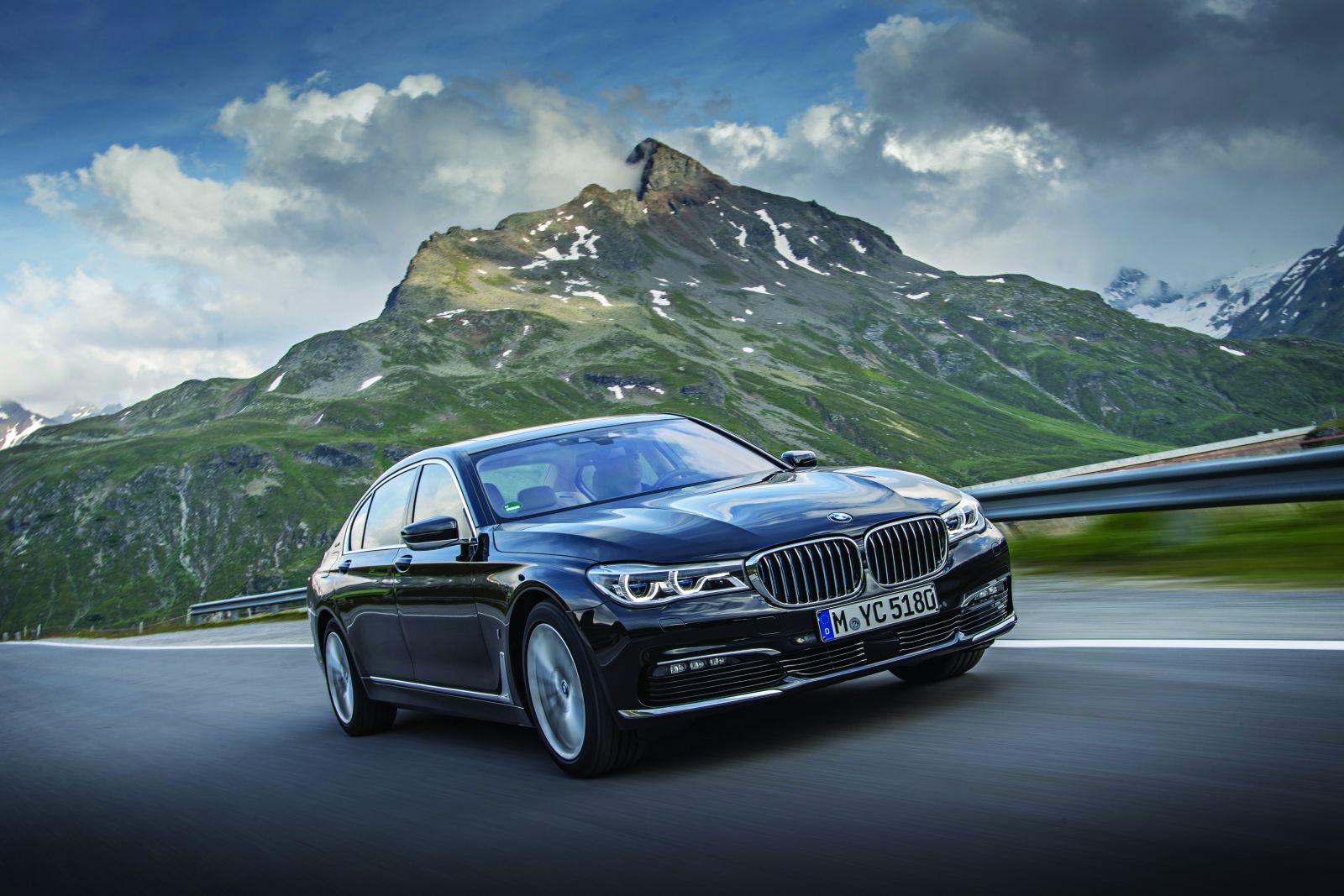
- What are the technical pillars of BMW?
As mentioned, we are pioneers of innovation and our DNA is as an engineering company; we are not a traditional sales company but more of a traditional engineering and production company. Our engineers are always keen to present the best products, such as the new BMW 5 Series. When we drove the new BMW 5 Series in Barcelona, we were surprised in the most positive way because our engineers did a great job in regards to comfort, fuel efficiency, driving dynamics and innovation. You can let the car drive by itself for 10 to 30 seconds [while keeping your hands on the steering wheel]. It is a great experience to feel this new technology. The four main pillars of future mobility is ACES, which stands for automated, connected, electrified and shared, which will form the foundation for BMW’s task to be a pioneer and leader of the industry.
- Please elaborate on BMW innovation.
I want to stress our BMW i sub-brand, which stands for innovation. The BMW i3 and i8 were the first BMW cars developed for the purpose of enhanced electrified driving, by reducing weight, using new materials and designs.The BMW i3 is focused on city driving, lightweight, future interior design and new materials while the i8’s breathtaking design, environment-friendly factor and fuel efficiency still make it a fun sports car. But the thrill of the i8 is not driving 250kph on the highway but driving noiseless, which is impressive, just like flying over the roads … everyone wants to sit in an i8.
- What is your perspective on automobile electrification in Thailand?
First of all, I must say welcome to the club! Many countries and manufacturers are improving their electric mobility while BMW, as the pioneer in this field, started with BMW’s iPerformance, consisting of four BMW models which use plug-in technology. We launched the BMW 740 Le as the first luxury sedan to run on plug-in technology. However, we also face the reality that Thai customers today are not really looking for the most environment friendly car, but the customer wants innovation, technology, a fair price and usage which presents no headaches.
BMW has answered the question about charging infrastructure by installing five charging stations in Bangkok, a figure which will increase to 20 [12 in Bangkok and eight upcountry]. BMW has also discussed with the Thai government regarding a plug-in charging infrastructure. We have to educate customers and ensure that charging is available every day and anytime.
- Is electrification of the auto industry a PR stunt?
It is a very important technology but electric cars are not the solution for every customer who drives daily for long distances, for which I wouldn’t recommend plug-in vehicles, because the diesel engine is more fuel efficient, but if you drive in the city then plug-in hybrid is a good solution if you can charge regularly … you can drive every day without fuel consumption for 30-40 kilometres, theoretically.
- How can the state and private sectors help with electrification?
I think we have four pillars towards successful electric mobility. Norway’s car population is about 40% electric because there are tax advantages for buyers, free parking and free charging for the many customers who are keen to drive electric cars. For Thailand we need the same requirements for the price to be competitive; secondly, there must be a charging infrastructure; thirdly, there must be some kind of tax advantage or support for the buyer; and the fourth requirement is to educate customers on why electric cars are an advantage.
- In what corporate social responsibility (CSR) activities is BMW involved?
As a corporate citizen in Thailand, we not only sell cars but give back to society. Our Care4water project by BMW Leasing is a successful CSR activity which includes our BMW plant and demonstrates a holistic approach from all three BMW entities. We donate water filters and ensure that these filters reach areas without access to clean water. One water filter can provide fresh clean water to 100 people per day. Last year 1,600 filters were donated to villages. We plan to increase our donations to 5,000 filters, which will enable 500,000 people to have access to clean water. Our dealerships, employees and the whole company is involved in this project.
Another CSR initiative is education, because Thailand needs educated individuals for the future industry 4.0. We need specialists and people with knowledge, which is why we started our apprenticeship programme, called the German-Thai Dual Excellence Education (GTDEE), in 2012 with B. Grimm and Bosch and the German-Thai Chamber of Commerce. This programme guarantees participants jobs as mechanics at our plant in Rayong. In Germany, dual vocational programmes have been successfully implemented for the past 40 to 50 years. In Thailand there is a lack of perception for this type of education. BMW also supports other projects such as supporting children in need, at Baan Gerda, and His Majesty the King Bhumibhol Adulyadej's sustainable development projects by supporting the Chaipattana Foundation.
- Rate your performance in the premium car segment.
Very good. There is room for improvement as we want to be the leader, but we are convinced with new products and a strong dealer network we can achieve our targets.
- What is your opinion of the discerning Thai customer?
I don’t believe the Thai customer is so different from the European or international customer. Everyone wants the best car but the only difference is the price and tax rates in Thailand. What I can say is that expectations are very high, which is why we must ensure that we have the right service and right product.
- Does BMW Thailand sponsor sports activities?
Of course. Our worldwide focus is on core sports such as golf, sailing, motorsports like the DTM series competition and the 24-hour Le Mans racing competition. In Thailand it is golf. You can play all year round. People are keen to golf. I have never seen so many golf courses anywhere else. There are 53 courses in Bangkok alone and another 200 courses outside Bangkok. Our customers recently won the BMW Golf Cup International World Final 2017, which is the world's largest amateur golf tournament, in Dubai. We are very proud of this achievement. BMW also sponsors cultural events such as the music and dance festival in Bangkok to help cultural activities.
- Does BMW create jobs in Thailand?
Most definitely. We expanded our workforce at our Rayong plant by 100% [400 jobs created over the last 18 months]. Our network of 22 dealerships constantly employs people and creates jobs.
- What about technology transfer by BMW?
We are bringing a high voltage battery assembly plant next year to Rayong. We also try to increase local content, and bring innovation to the country.
- Is Thailand’s import tax system reasonable?
We understand the reason why you have high import tax rates, because it serves as a protection scheme for the auto industry, but to promote and increase electric cars it might be good to have some exemptions to ensure new technology and innovation will be realized within the local auto industry.
- Describe the day-to-day routine of a BMW Thailand CEO.
It’s not a surprise that there are many meetings but I can say that my day-to-day work is always different. Not a single day is the same. We are in the people business and the majority of my work is to talk and deal with people in different areas such as associates, business partners, suppliers, colleagues and customers. Therefore I have to say my daily work involves taking care of the company, developing business schemes and processes for the future.
